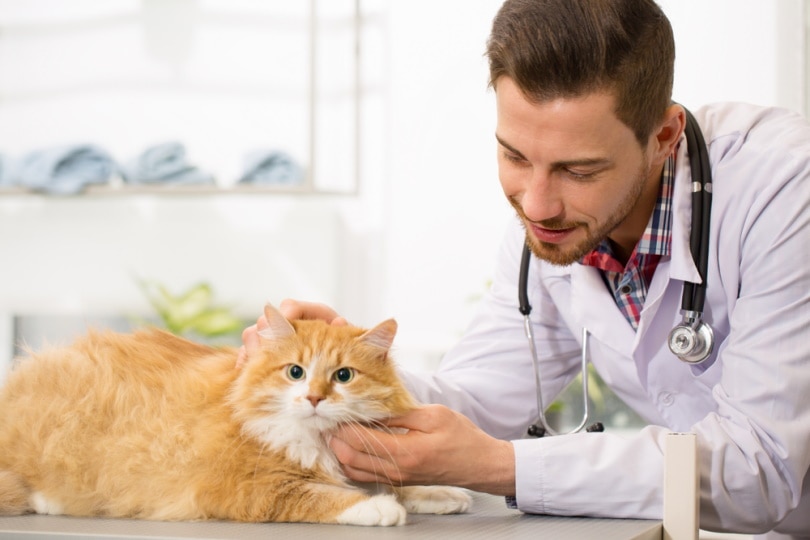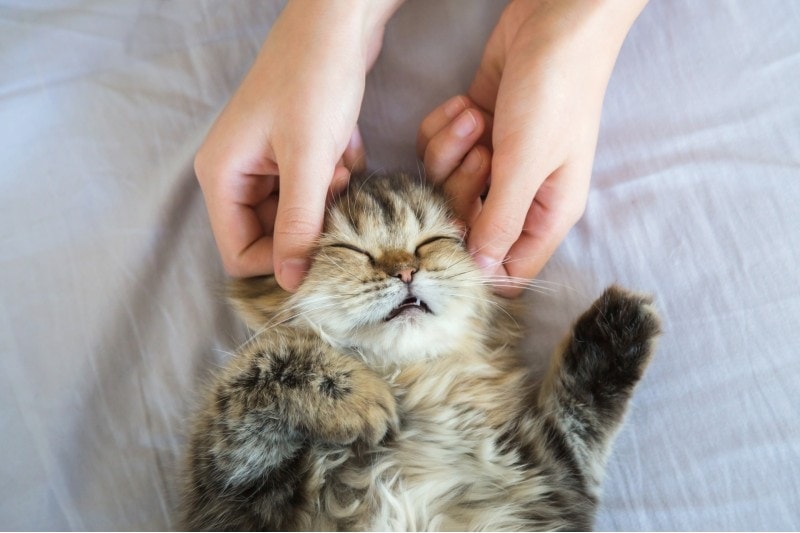Is It True That Cats Can Get Addicted to Catnip? Feline Facts & FAQ

Updated on
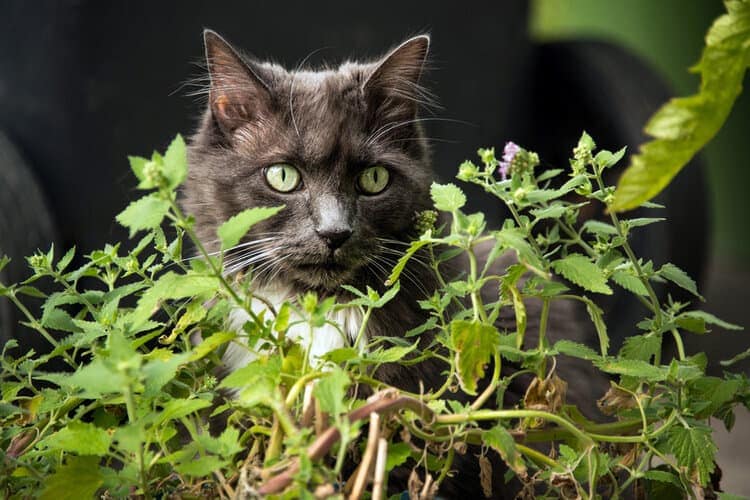
Click to Skip Ahead
If your cat goes crazy around catnip, you might be reminded of a person under the influence of drugs. And with the lengths cats will go to get catnip, it’s easy to see why some owners worry it’s addictive. But is “catnip addiction” really possible? The short answer is that catnip isn’t really addictive—at least, not in the same way as addictive drugs. To understand what the difference is, we need to learn a little more about what makes catnip so appealing.
How a Catnip “High” Happens
The strong reaction that many cats have to catnip is due to one important chemical compound called nepetalactone. When a cat smells catnip, this compound triggers a reaction that creates endorphins. Endorphins are essentially happy signals—they’re produced by things like laughter, exercise, and eating good food. They’re also the signals that opioid drugs hijack. For some cats, smelling nepetalactone causes a huge endorphin rush, and that’s what makes catnip so exciting.
Catnip vs. Addictive Drugs
So what’s the difference between catnip and an addictive drug? The rush might actually be similar—remember, opioids mimic the same endorphins that catnip releases. But there’s a big difference. Unlike addictive drugs, using catnip doesn’t affect their natural hormone balances or endorphin releases over time. In an opioid addiction, the brain stops producing natural endorphins and relies on the opioids instead. Trying to quit can cause serious medical issues before the brain can relearn how to send the proper signals. In catnip, there’s no danger of that—your cat’s brain is the same no matter how much catnip is used.
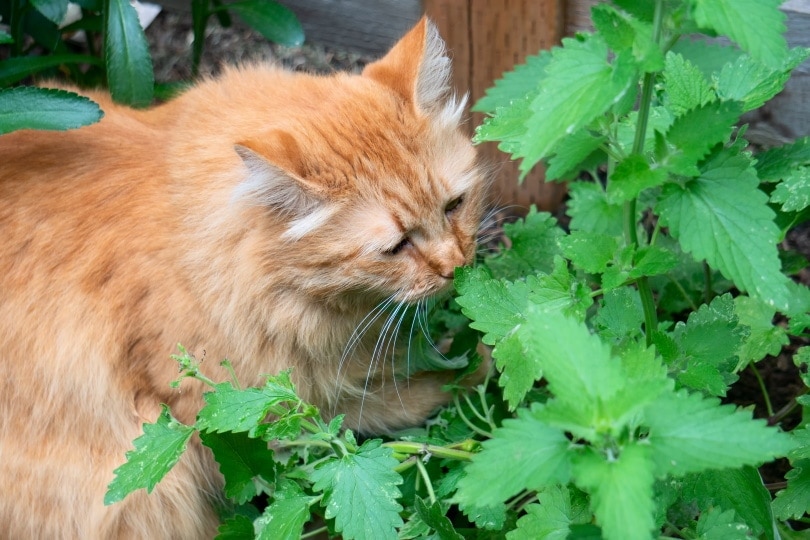
Catnip’s Evolutionary Benefits?
Even though we know how catnip causes a natural high, the reasons behind that are still a puzzle. It’s possible that the catnip effect is just a random quirk of biology. There doesn’t seem to be any obvious benefit for cats except for feeling good. And only about two-thirds of cats react to catnip at all. If catnip highs had a strong evolutionary benefit, the love of catnip would probably be a universal trait. But not everyone agrees with that line of thinking, and there’s one theory that stands out. It might all be due to those pesky mosquitoes.
Just like humans, cats are in danger from mosquito bites. Although their thick fur protects most of their bodies, cats do have vulnerable places where mosquitoes can bite, especially their ears. And according to a recent study, catnip oils are a natural mosquito repellent. When cats rub their faces in catnip, they get some pleasant endorphins, but they also may be giving themselves a slight advantage against disease-spreading bug bites.
Is Catnip Safe? Overdoses, Withdrawals, and Tolerances
Along with its addictive properties, many owners have other drug-related worries when it comes to catnip. There are still some things we don’t know about the plant, but if you worry about a catnip overdose or withdrawal, you can relax. Catnip isn’t toxic to cats in any amount, and it won’t cause an overdose. In theory, overeating catnip could cause some tummy troubles because cats don’t have stomachs capable of processing a large amount of plant material. The good news is that most cats only nibble on catnip and don’t actually swallow much, so this is rare. Catnip also can’t cause withdrawal because it isn’t habit-forming.
There are interesting effects of catnip ingestion that are a little more drug-like, though. First, catnip high does have a “refractory period.” The spike in endorphins starts in seconds and lasts about 10–15 minutes but once the effects wear off, your cat won’t be affected by catnip again for a few hours. Second, there is some research showing that catnip tolerances can exist. If your cat has constant access to catnip, in time the effects might be smaller. So although it’s not harmful to your cat, your cat will probably enjoy it more if it’s not a daily treat.
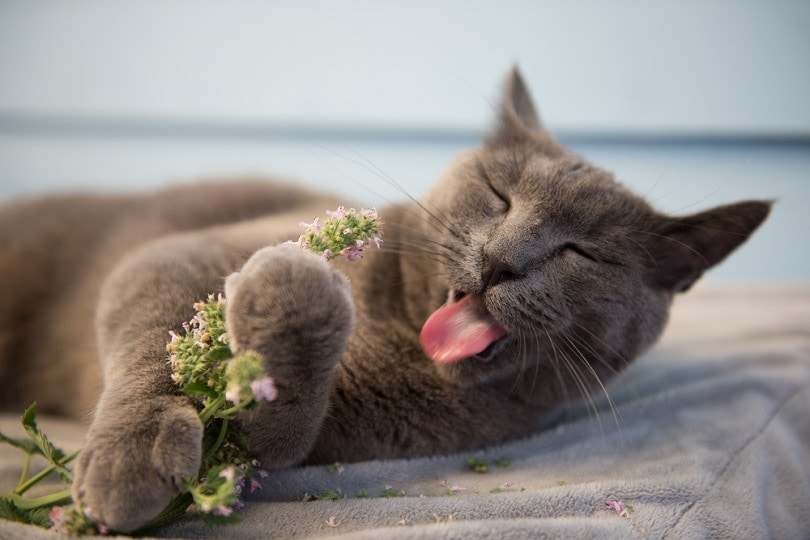
Last Thoughts
As of right now, all the research shows that catnip is a harmless, enjoyable occasional treat. It does create a rush similar to some drug use but in a healthy, non-addictive way. Catnip may even have a mild evolutionary benefit as a natural bug repellant. However, cats can develop a tolerance to catnip over time, so if your cat seems less affected by catnip than before, putting it away for a few weeks might help.
Featured Image Credit: Georgia Evans, Shutterstock


